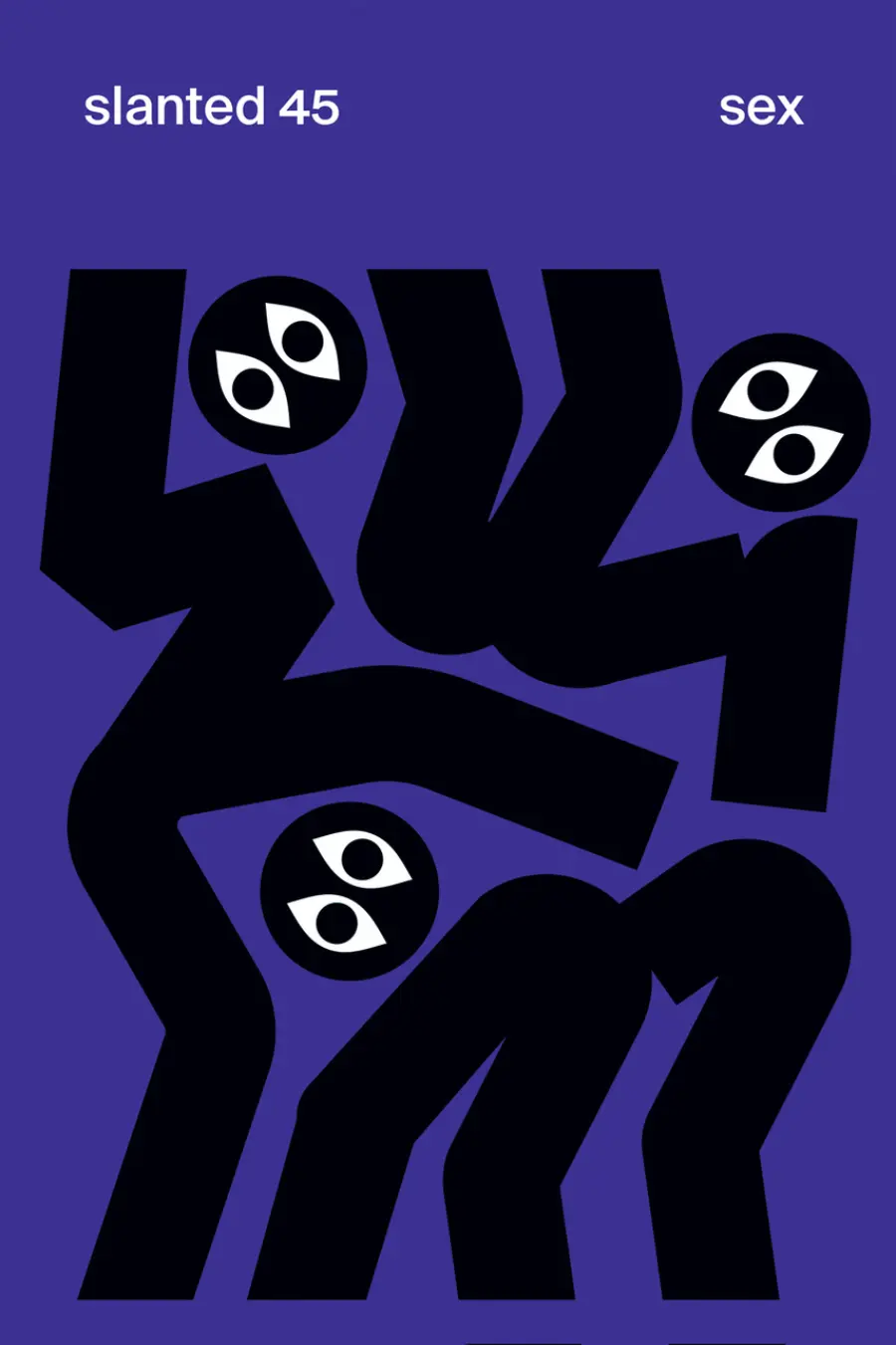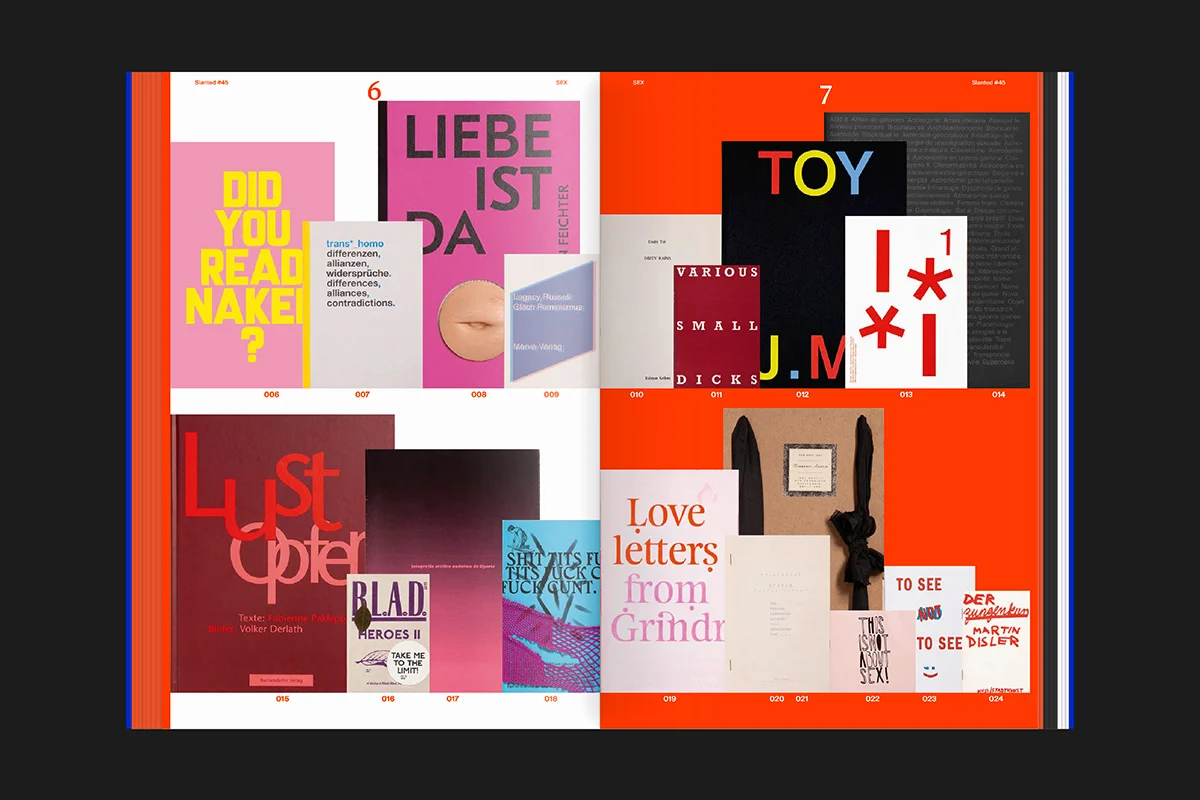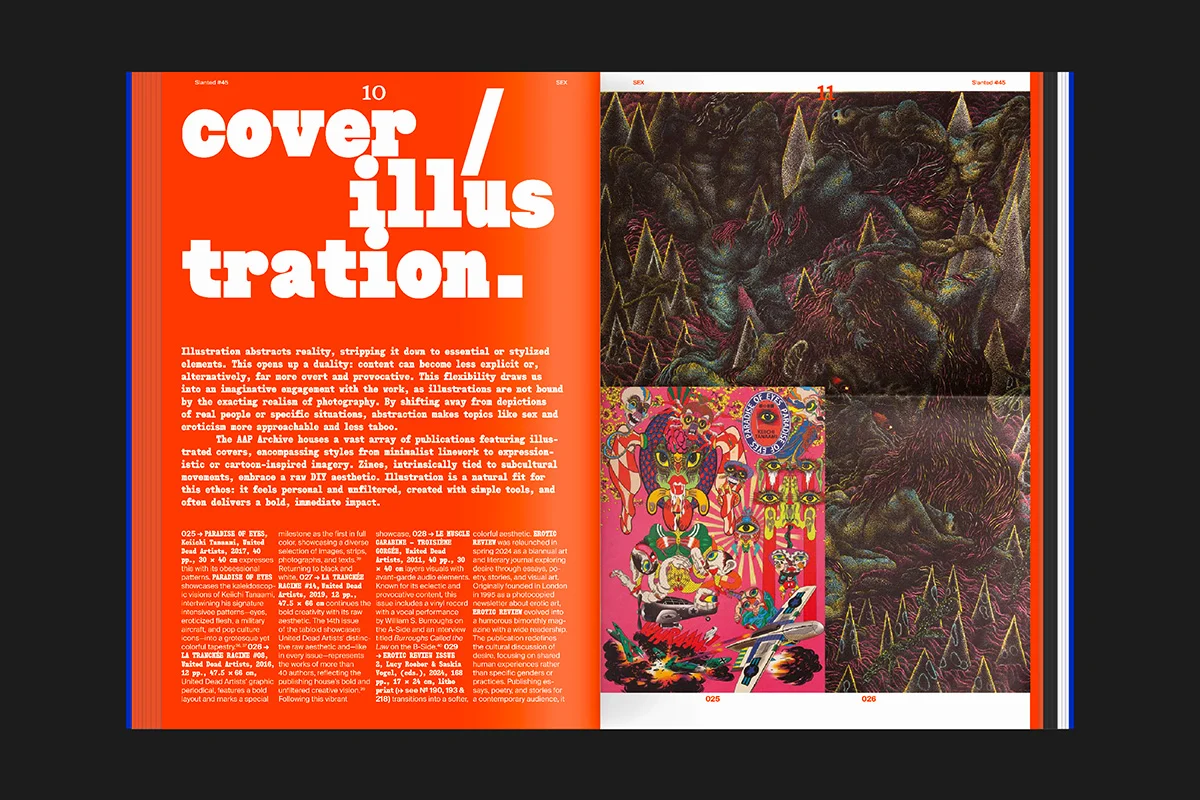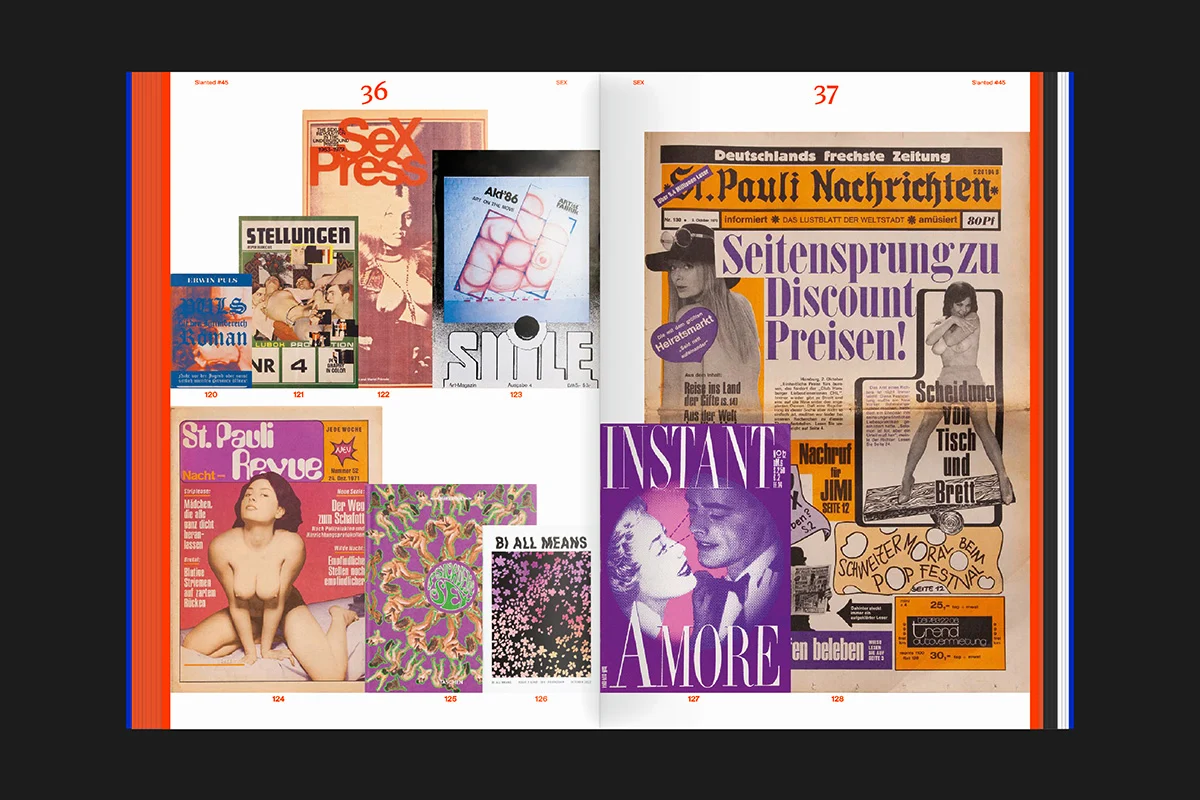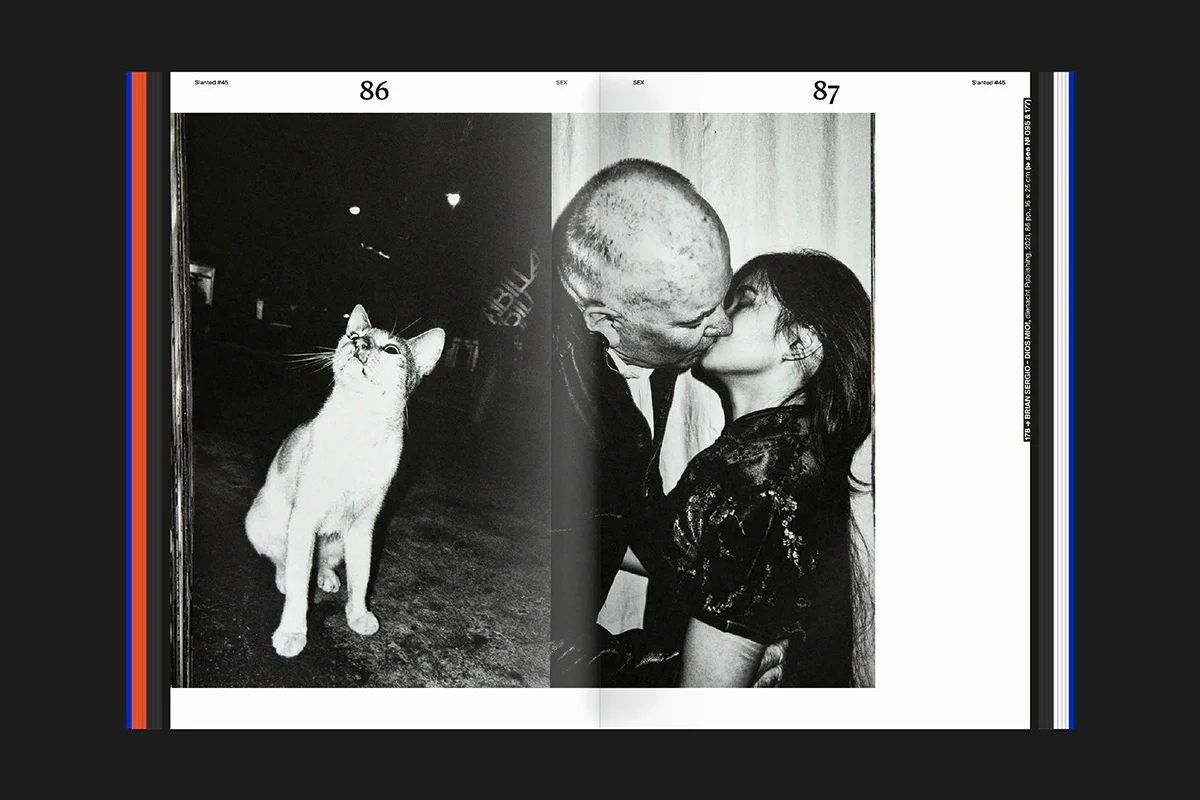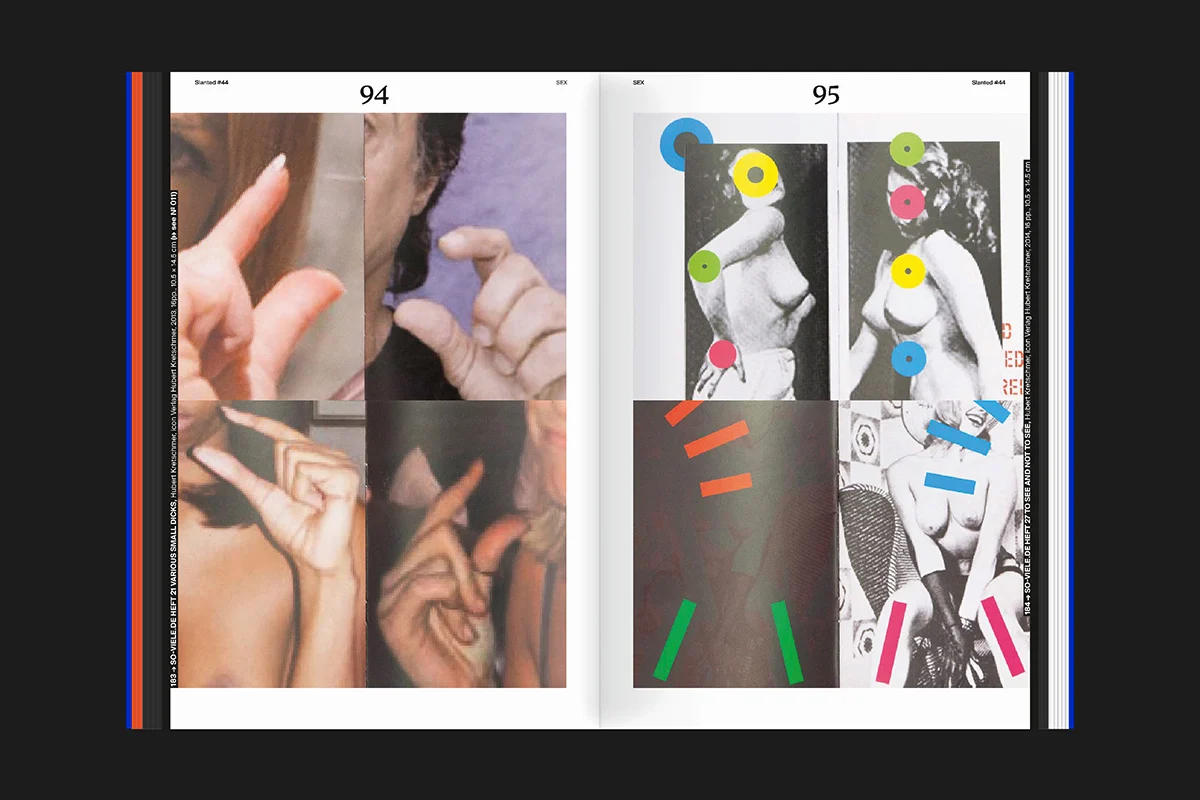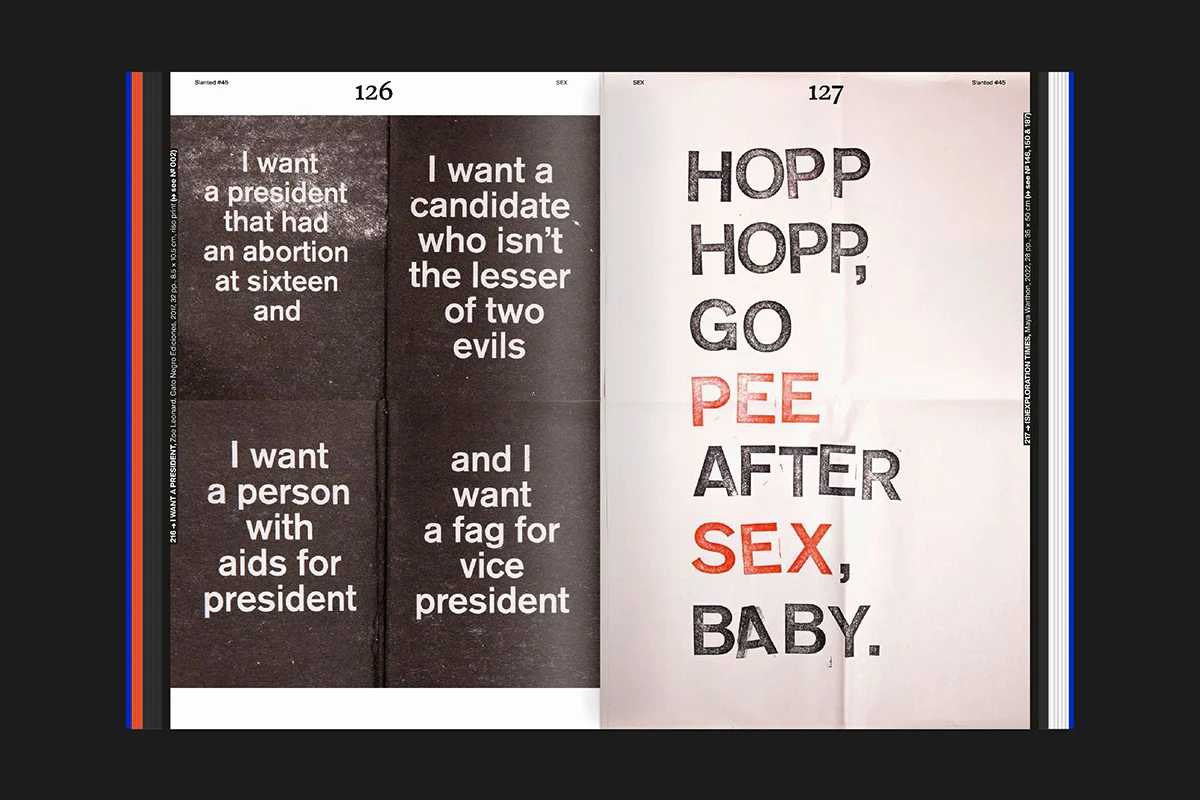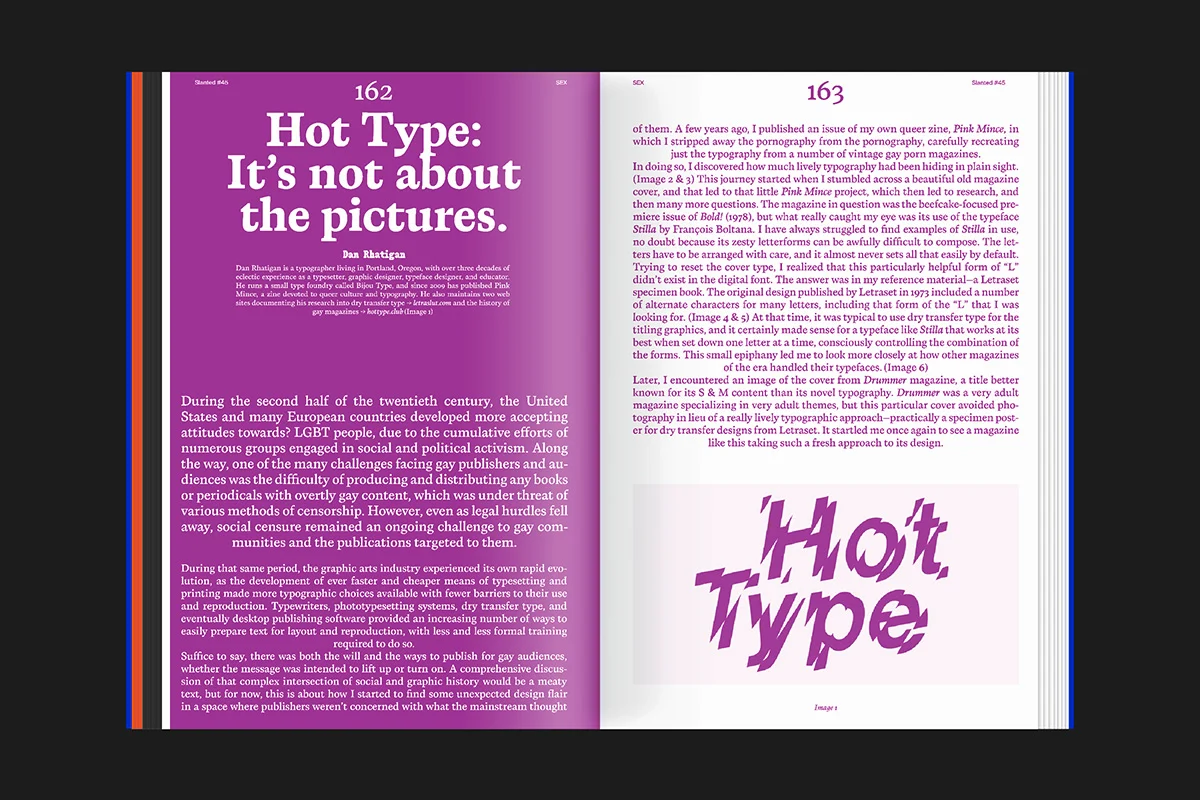Slanted, Issue 45 – Sex
Shipping Class 2 = 69 SEK
Shipping Class 3 = 89 SEK EUROPE SHIPPING #1 Shipping Class 1 = 100 SEK
Shipping Class 2 = 150 SEK
Shipping Class 3 = 200 SEK EUROPE SHIPPING #2 Shipping Class 1 = 150 SEK
Shipping Class 2 = 200 SEK
Shipping Class 3 = 250 SEK EUROPE SHIPPING #3 Shipping Class 1 = 150 SEK
Shipping Class 2 = 250 SEK
Shipping Class 3 = 350 SEK OUTSIDE EUROPE SHIPPING Shipping Class 1 = 150 SEK
Shipping Class 2 = 250 SEK
Shipping Class 3 = 350 SEK
NOTE: You can buy as many items you want within the same shipping class. Read more » ×
Slanted started with a Weblog in 2004. The first magazine issue was published 2005.
Slanted is the first German magazine devoted to typography. It takes an interdisciplinary approach, and has been designed to complement the highly- frequented internet blog at www.slanted.de.
The main focus of Slanted is typography found within design, illustration and photography, but a variety of other topics — related both directly and indirectly to the field — are also addressed. The magazine contains expertise analyses and reports, as well as information on typographic experimentation, portraits and interviews with todays superstars and underground players on the international scene of typography and design. All of this is presented alongside spectacular, first-class graphics and thought-provoking photography.
In this issue:
Slanted Magazine 45: Sex was produced in collaboration with the Munich-based Archive Artist Publications (AAP). The archive contains over 89,988 rare zines, booklets, posters, and other printed matter that Hubert Kretschmer has collected since the 1980s. The magazine presents a selection of artistic positions that deal with body politics, self-image, and identity from a contemporary and historical perspective. In the creation of visual narratives, marginalized bodies – non-binary, queer, disabled, racialized – are often underrepresented or depicted in a symbolic way. With provocative images and diverse stories, ‘Slanted Magazine’ opens the door to a deeper, multi-faceted dialogue about bodies and belonging.
Related products
-
Graphic Design
New Aesthetic 3
Design and art are constantly evolving. In both professions, we either risk that our work is transforming into artifacts from a previous period or we can embrace change, encourage experiments and produce more meaningful results. New Aesthetic is looking at experimental and independent type design as an intersection of art and design. Typography has established […]
525 SEK -
Design - Graphic Design - SALE
Mono Moment—Monospace Type Design
Monospaced fonts are fascinating! Mono Moment is aimed at type designers typographers and designers, but also at people who are dealing with type design for the first time
Original price was: 295 SEK.149 SEKCurrent price is: 149 SEK. -
Graphic Design
Serif in Use
Showcasing creative pairings and ingenious applications of Serif and Sans Serif typefaces as well as a rich selection of type specimen, Sans in Use and Serif in Use act as a reference point to inspire type designers and type lovers alike. In the world of typography, it is not uncommon to see combinations of serif and sans serif typefaces […]
579 SEK -
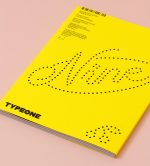 Graphic Design
Graphic DesignTYPEONE Magazine 09 – Packaging, Food and Typography
TYPEONE is our new bi-annual magazine that uses creative type mediums as a gateway to explore topics such as culture, business, technology, innovation, and design. All these explorations lead by our TYPE01 team and network of freelancers discuss global initiatives, projects, campaigns, and the people behind them — spotlighting the next generation and featuring a […]
295 SEK

